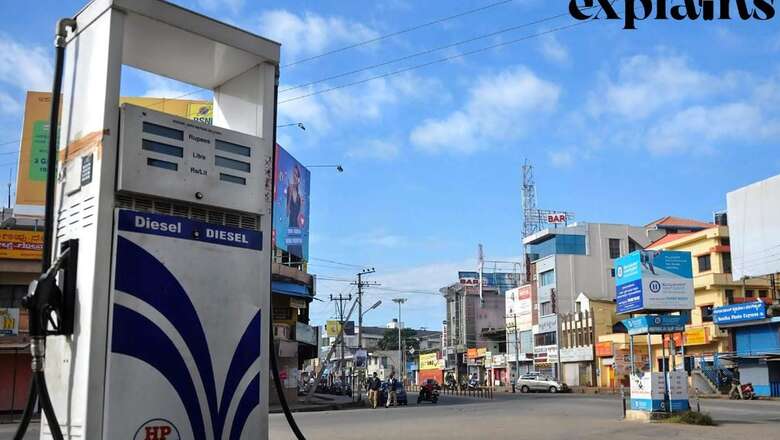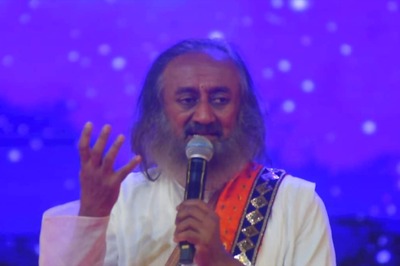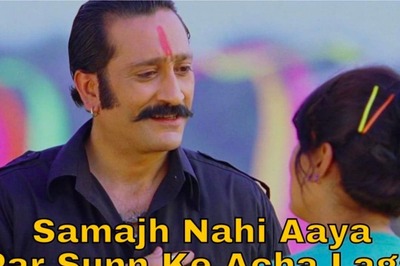
views
India is pushing for higher ethanol-blended fuel for cleaner energy and its economic value and the country has moved a long way in the last five years.
The country is working on ethanol and methanol blended fuel to run vehicles to reduce emissions and the cost of fuel imports. At present, 10 per cent ethanol is blended in petrol (10 per cent ethanol and 90 per cent petrol) and the government is looking to double this quantity by 2025. Earlier this year, petrol blended with 20 per cent ethanol was rolled out at select petrol pumps in 11 states and union territories.
Biofuels like ethanol and methanol, when mixed with conventional fuels like petrol, are much cheaper and viable options to run vehicles as they have low manufacturing costs and reduce dependency on oil imports. Here is all you need to know about ethanol and methanol and how their blending will be a viable solution for cleaner fuel.
What are Ethanol and Methanol?
Methanol and Ethanol are both different variants of alcohol. Ethanol (C2H5OH) and methanol (CH3OH) can be manufactured from natural products or waste materials which is renewable.
Ethanol, an anhydrous ethyl alcohol can be produced from sugarcane, maize, wheat, etc which have high starch content. In India, ethanol is mainly produced from sugarcane molasses by fermentation process.
Methanol is a low-carbon, hydrogen carrier fuel. It can be produced from high ash coal, agricultural residue, CO2 from thermal power plants and natural gas. Methanol burns efficiently in all internal combustion engines, and produces negligible particulate matter and soot, almost nil SOX and NOX emissions (Near Zero Pollution).
Ethanol and Methanol Blending in India
Ethanol Blending: Ethanol blending is nothing but mixed motor fuel containing ethanol, which is 99.9% pure alcohol made from agricultural products with and blended exclusively with petrol. Prime Minister Narendra Modi has announced that the country will achieve the target of 20% ethanol-blended petrol by 2025. As per a recent report, E-20 (petrol blended with 20 per cent ethanol) is available in close to 1,000 stations.
Union Road Transport and Highways Minister Nitin Gadkari in August this year launched Toyota Innova car that runs on 100 per cent ethanol, making it the world’s first car to do so.
Methanol Blending: Methanol is a multipurpose fuel that can be used either by blending component in fuels or for the production of fuel components. Methanol blending is similar to ethanol blending where methanol is mixed with petrol and can be used to run vehicles.
Union Minister Nitin Gadkari in June this year said he had recommended the use of methanol trucks and methanol-blended diesel to bring down the cost of logistics. He also said that the petroleum ministry is working on a policy for the introduction of 15 per cent methanol-blended diesel. Last year, Indian Oil Corporation rolled out M15 petrol, a blend of 15 per cent methanol and 85 per cent Gasoline, on a pilot basis in Assam.
#Explained: Nitin Gadkari to Unveil 100% Ethanol-fueled Innova Car: All About Ethanol-run Vehicles, Countries Using it#NitinGadkari #Auto #Ethanol https://t.co/A46VCijwjI pic.twitter.com/XaUa4lmfcy— News18 (@CNNnews18) August 29, 2023
The Bangalore Metropolitan Transport Corporation (BMTC) launched 20 buses as a part of a pilot project in March this year which would run on 15 per cent methanol-blended fuel.
Advantages of flex-fuel
Flex-fuel like ethanol have several advantages: it is good for the environment and helps in lowering emissions, it helps the country to cut down on its crude oil import bills, it helps the farmers growing crops like sugarcane or rice and finally it reduces the logistics cost and overall cost of transportation.
Here is a detailed look at some of the advantages that ethanol and methanol blended fuels have:
- India, the world’s third-largest oil consumer, is currently 85 per cent dependent on imports to meet its oil needs. India has saved around Rs 53,894 crore in forex outgo from 10 per cent blending of ethanol in petrol, a report in PTI said.
- Use of ethanol, extracted from sugarcane, broken rice and other agriculture produce, will help the farmers and reduce their reliance on overseas shipments. During the last eight years, farmers have earned Rs 49,078 crore.
- Ethanol and methanol are manufactured from natural products or waste materials which is renewable and will replace gasoline fuel which are non-renewable energy. Both the fuels are also water soluble and biodegradable in the environment, cutting the consequences of a spill in the ocean.
- Use of E20 (20 per cent of ethanol in fuels) leads to an estimated reduction of carbon monoxide emissions by about 50 per cent in two-wheelers and about 30 per cent in four-wheelers compared to neat petrol.
- The Methanol Economy is expected to create around 50 lakh jobs through methanol production, its application and distribution services. Additionally, Rs 6,000 crore could be saved annually by blending 20 per cent DME (Di-methyl Ether, a derivative of methanol) in LPG.
Boost for Farmers
During the last eight years, ethanol suppliers have earned Rs 81,796 crore while farmers have got Rs 49,078 crore.
Meanwhile, the country has saved Rs 53,894 crore in foreign exchange outgo. Also, it led to a reduction of 318 lakh tonnes of carbon-dioxide (CO2) emissions.
The current annual ethanol production capacity in the country is about 1,037 crore litres which includes 700 crore litres of molasses-brd and 337 crore litres of grain-brd production capacity.
As per reports, around 440 crore litre of ethanol was blended in petrol during the supply year ending on November 30, 2022. In the current supply year, the government is targeting around 540 crore litres of procurement, which would benefit the country and the farmers.
For ethanol production, there are other options too apart from sugarcane. One tonne of rice can produce 450-480 litres of ethanol, while it is 450-460 litres from broken grains, 380-400 litres from maize, 385-400 litres from jowar and 365-380 litres from bajra and other millets, according to The Indian Express.




















Comments
0 comment